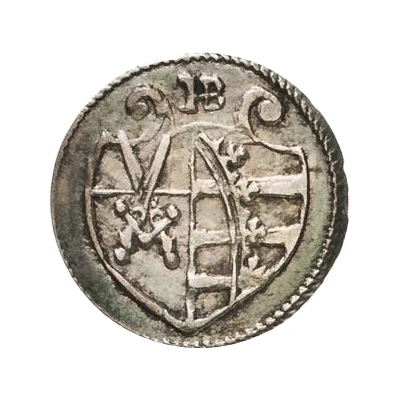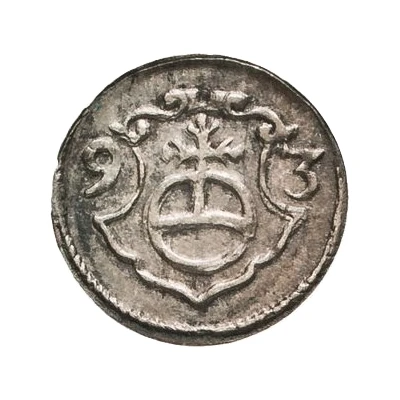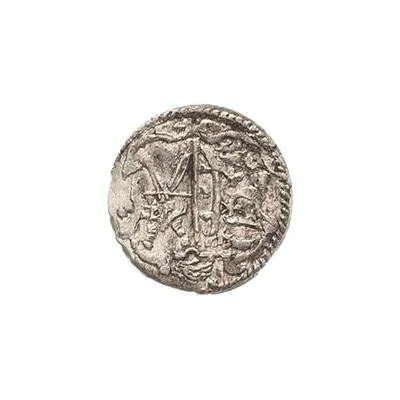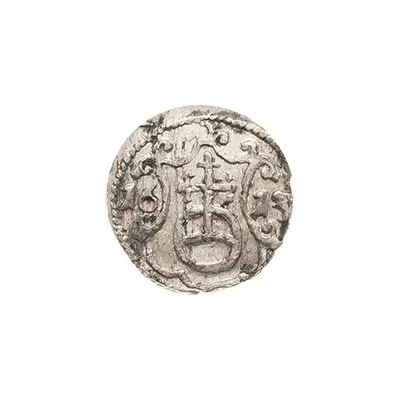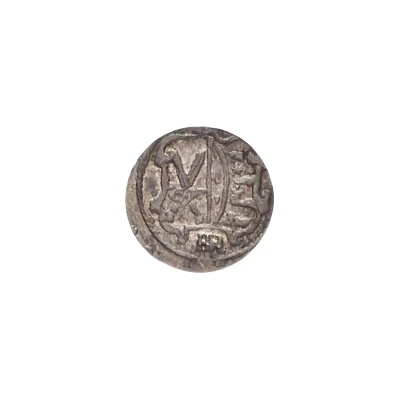
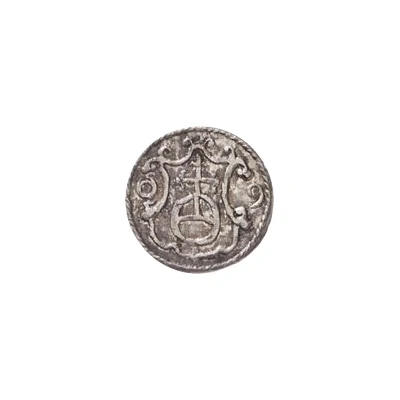

© Leipziger Münzhandlung und Auktion Manfred Höhn
1 Pfennig - Christian II, John George I and August
1609 year| Silver | - | - |
| Issuer | Electorate of Saxony (Albertinian Line) (German States) |
|---|---|
| Issuer | Electorate of Saxony (Albertinian Line) (German States) |
| Prince elector | Christian II (1591-1611) John George I (Hans Georg I) (1591-1656) Augustus (August) (1591-1615) |
| Prince elector | Christian II (1591-1611) John George I (Hans Georg I) (1591-1656) Augustus (August) (1591-1615) |
| Type | Standard circulation coin |
| Type | Standard circulation coin |
| Year | 1609 |
| Year | 1609 |
| Value | 1 Pfennig (1⁄288) |
| Value | 1 Pfennig (1⁄288) |
| Currency | Thaler (1493-1805) |
| Currency | Thaler (1493-1805) |
| Composition | Silver |
| Composition | Silver |
| Shape | Round |
| Shape | Round |
| Demonetized | Yes |
| Demonetized | Yes |
| Updated | 2024-10-05 |
| Numista | N#185850 |
|---|---|
| Rarity index | 100% |
Reverse
Imperial orb in cartouche divides date.
Interesting fact
One interesting fact about the 1 Pfennig coin from the Electorate of Saxony (Albertinian Line) is that it was made of silver, which was a rare and valuable material at the time. This coin was issued during the reign of Christian II, John George I, and August 1609, and its silver content made it a highly sought-after currency among merchants and traders. The use of silver in the coin's minting process was a deliberate choice by the ruling dynasty, as it symbolized the wealth and power of the Electorate of Saxony. Despite being a small denomination, the 1 Pfennig coin was a significant symbol of the region's economic and political influence during the early 17th century.
